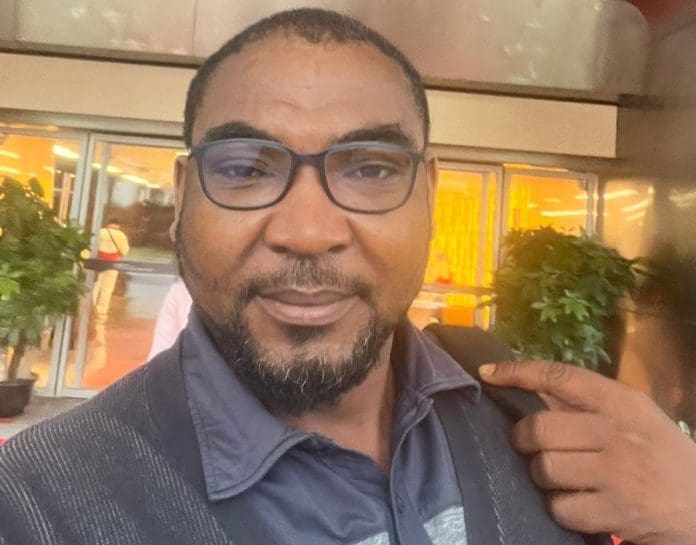Environmental advocate Roger A. Agana has added his voice to escalating calls for President John Dramani Mahama to declare a state of emergency over illegal mining (galamsey), arguing that Ghana faces an “environmental apocalypse” requiring extraordinary constitutional measures.
In a strongly-worded editorial published on NewsGhana.com.gh on September 25, 2025, Agana declared that “the mounting environmental catastrophe demands extraordinary measures that only emergency powers can deliver” and that “the hour for half-measures has passed.”
The environmental advocate’s intervention comes amid intensifying pressure from multiple civil society organizations. The Ghana Coalition Against Galamsey has renewed demands for emergency declaration, citing over 7,000 excavators causing mass environmental destruction across the country, while the Media Coalition Against Galamsey, through Convenor Ing. Kenneth Ashigbey, has argued that the scale of destruction to Ghana’s environment warrants extraordinary action.
Agana’s editorial emphasizes the humanitarian dimensions of the crisis, noting that “entire communities like Gomoa Buduburam have gone nearly a month without treated water flowing through their distribution networks” and describing the situation as “not just environmental degradation—it is a humanitarian crisis.”
The advocate argues that emergency declaration under Article 31 of the Constitution would enable rapid deployment of security forces to mining hotspots, immediate equipment seizures, and strict movement controls in devastated areas. He contends that conventional enforcement has “failed spectacularly” while environmental destruction continues unabated.
However, Agana’s position faces opposition from legal experts and political figures who question emergency powers’ effectiveness. Legal practitioner Musah Ahmed of Ahmed Legal Consult has cautioned that declaring a state of emergency would not automatically resolve the galamsey crisis, while former Vice President Bawumia aide Dennis Miracles Aboagye argues that government should invest in social mindset reorientation rather than emergency measures.
The debate occurs against a backdrop of documented environmental devastation. Agana cites Water Resources Commission data indicating that 60% of Ghana’s water bodies are now polluted, with illegal mining having degraded 40% of the country’s forests. He argues that mining operations release toxic chemicals including mercury, lead, arsenic, and cadmium into ecosystems, creating health hazards for future generations.
President Mahama has maintained a cautious stance on emergency declarations. At a media engagement on September 10, 2025, the President ruled out immediate state of emergency measures, insisting that existing laws provide sufficient framework for addressing illegal mining.
Constitutional expert Dr. Elvis Banoemuleng Botah has previously argued that the galamsey crisis warrants state of emergency declaration, joining voices calling for extraordinary presidential action. The constitutional debate centers on whether illegal mining meets Article 31 requirements for threats to national life, public safety, and territorial integrity.
Agana acknowledges concerns about emergency power abuse but argues that safeguards including clear timelines, judicial oversight, and transparent exit strategies can address such risks. He contends that emergency powers should target the most devastated zones while implementing fast-tracked legal reforms and environmental restoration initiatives.
The environmental advocate’s editorial represents the latest contribution to Ghana’s ongoing galamsey emergency debate, joining religious leaders, civil society coalitions, and policy analysts in demanding decisive presidential action. Recent civil society pressure has included appearances on television programs and sustained media campaigns highlighting environmental destruction statistics.
Economic implications feature prominently in Agana’s argument. He notes that water treatment costs have skyrocketed as companies struggle with increasingly polluted sources, while agricultural productivity has plummeted in former mining areas. The Ghana Water Company Limited has requested massive tariff increases, passing pollution costs to consumers facing economic hardship.
Agana concludes his editorial with a direct appeal to President Mahama, stating that “the choice facing President Mahama is stark: declare emergency powers to save Ghana’s environment or watch helplessly as illegal mining completes its destruction of our natural heritage.”
The growing chorus of emergency declaration advocates faces ongoing resistance from the presidency and legal experts who favor conventional enforcement mechanisms over extraordinary constitutional measures. The debate reflects broader tensions between environmental urgency and democratic governance principles in addressing Ghana’s illegal mining crisis.
Source: newsghana.com.gh











